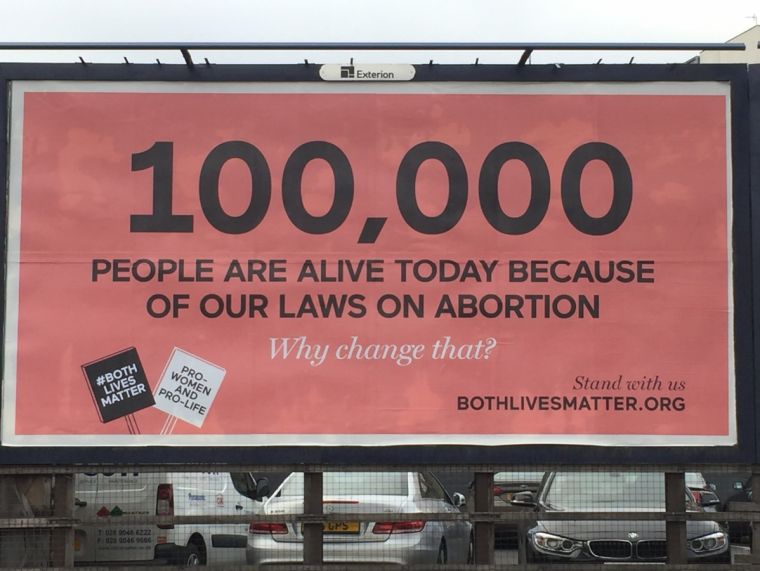Do our current laws on abortion save lives?
The abortion laws in Northern Ireland receive much negative press attention because the province did not introduce the 1967 Abortion Act, unlike other parts of the United Kingdom. Northern Ireland is often therefore criticised as being 'too strict', with the 1967 Act regarded as a neutral standard against which to judge the province's laws. However, when people talk about introducing or changing legislation, rarely do they question how the laws have shaped the society they protect or what kind of culture they have fostered.

Today, the news broke in Northern Ireland that the Advertising Standards Authority (ASA) has formally acknowledged that it was reasonable for the claim to be made that at least 100,000 people are alive in Northern Ireland today because the province did not introduce the 1967 Abortion Act.
The ASA was investigating whether a billboard that the group Both Lives Matter put up highlighting the 100,000 figure was misleading after a few complaints were lodged. The ASA employed an independent healthcare statistician who found that the figure stood up to scrutiny. The conclusion was that: 'The evidence indicated that there was a reasonable probability that around 100,000 people were alive in Northern Ireland today who would have otherwise been aborted had it been legal to do so.'
A hundred thousand people would fill the 02 Arena five times over. They would fill Wembley Stadium to capacity and still leave 10,000 people queuing outside. The abortion laws have created a life-affirming culture in Northern Ireland. These 100,000 people are not an abstract figure but everyday people – friends, neighbours and colleagues who are alive because the 1967 Act was not introduced in the region.
There are nearly 200,000 abortions in the UK every year – that's around 17 per every 1000 women. This figure is among the highest in Western Europe, which has a much lower average of only around 6.5 per 1,000.
As the 50th anniversary of the 1967 Abortion Act looms it is time to consider the effect that is has had on our society. If 100,000 people are alive in Northern Ireland because it didn't embrace the '67 Act then perhaps it's time we ask the question: how many people would be alive in Great Britain Today had the Act not been introduced here in England, Scotland and Wales? Just how different would our communities look? How many stadiums would be overflowing with these lives?
This is a great opportunity to revisit the 1967 Act. The truth is we need legislative reform, but instead of Northern Ireland following Great Britain, Great Britain should be embracing Northern Ireland's positive, life-affirming example.
The 1967 Act currently contains no provision to offer ongoing counselling to those who need it, there is no explicit ban on sex-selective abortion and it allows for a baby found carrying a disability to be aborted right up until birth. The abortion limit is also set at 24 weeks even though 70 per cent of women across the UK would like to see that limit be significantly reduced.
We must be able to have open and honest conversations about how the 1967 Abortion Act is not only failing unborn children, but it's lacking in compassion for women too. Mothers need effective, practical and helpful support during and after their pregnancy. We need legislation across the UK which will affirm the worth and value of both mothers and children. Anything less undermines the dignity of both and the culture we want to create.
Nola Leach is chief executive of CARE.











